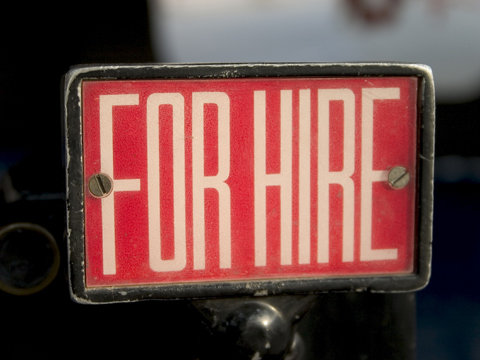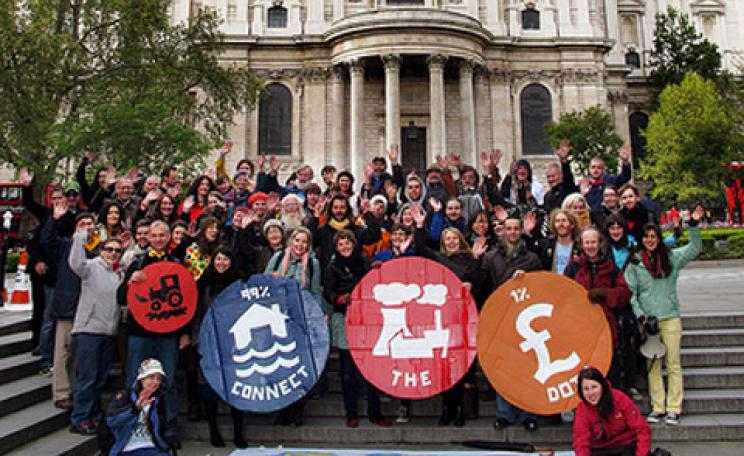Sixty years ago, Americans greeted the postwar era with a thrift-based value system that had gotten them through two decades of war and economic depression.
Corporate industry, meanwhile, exited the war capable of producing more goods than ever. But with the soldiers they once supplied now back home, they needed a new customer base.
If only industry could reverse the thrift-based values of the American people, then their ramped-up infrastructure could continue pumping out goods that would be readily bought by willing consumers.
Enter Madison Avenue. Marketers responded to industry's challenge decisively, taking a dramatic leap forward in marketing sophistication. They rejected the typical fact-based approach of advertisements in favor of an identity-based, storytelling construct.
The result? They created a radical reversal of thrift values and an explosion of consumerism that ignited in the United States in the 1950s and spread around the world. This became the era when people met the Marlboro man and came to believe that the cigarette someone smoked said a lot about who the person was.
They embraced the idea of perceived obsolescence, accepting that owning this year's television was a sign of virtue even if last year's model was still working perfectly well. Before long, even cultural resistance had requisite consumable products, such as the Volkswagen (VW) Beetle.
As is clear today, Madison Avenue's success has had deep, unintended consequences, and sophisticated story-based marketing continues to drive its relentless growth. Yet the seeds of the current consumption crisis may also contain powerful solutions.
Can marketing change the world?
If marketers were able to motivate a massive reorientation of cultural values and behaviours in relatively little time 60 years ago, can they do it again?
Could a revolution in social marketing, where marketing principles are used to change social behaviour rather than sell a product, drive a new set of values that would lead to the lifestyles and political changes necessary to confront today's ecological crises?
Certainly, social marketing faces major hurdles. In 2008, spending on advertising was estimated at over $271 billion in the United States and $643 billion worldwide. Today approximately only one in every thousand marketing dollars is spent on broadcast public service announcements that market for the public good - and only a tiny fraction of that is spent on sustainability issues.
But there are also enormous opportunities. Social marketing has a 40-year history of experience to draw upon, plus there are vast lessons to learn by observing traditional consumer marketing.
The internet has rapidly levelled the playing field in the media marketplace by reducing distribution costs and removing the barriers of traditional corporate gatekeepers who limited the broadcast of messages that ran counter to consumerism's values.
And the emergence of social media has spawned a 'viral' distribution model through which an inspiring message can move almost instantly and at nearly no cost through networks of mutual trust.
For social marketers to play a role in the transition from consumerism to sustainability, they will need to draw on the main lesson learned by consumer marketing in the 1950s: facts alone do not sell behaviour change. Instead, people working to foster sustainable behaviour must use storytelling to reach audiences on a human, personal scale.
Stories change behaviours
As social marketers craft a strategy for this critical next decade, understanding and harnessing the power of emotional storytelling may be their most important task.
Iconic, story-based campaigns do not simply shift the perception of a product or activity. To change behaviour on the scale they do, such campaigns have to shift how millions of people see themselves and how they are defined by, for example, their choice of cigarette, car, computer, or social behaviour. But is it storytelling per se that makes these campaigns so successful?
Writer and philosopher Joseph Campbell offers a compelling reason to believe that human-scale storytelling is key to opening people up to changing instinctive 'tribal' identities and altering behaviour. Campbell's views even imply that social marketing may have an advantage over product marketing in this arena.
In his seminal work, Hero with a Thousand Faces, Campbell presents a survey of mythology across broad cultural contexts and millennia and finds strong commonalities. He hypothesises that human beings are, in fact, genetically hardwired to see their world in terms of stories. And what's more, these stories are strikingly similar. They share certain archetypal characters like the hero, the nemesis, and the mentor, and they follow a plot of invitation to adventure, acceptance of that invitation, battle with the nemesis, and then return.
What is of particular interest to social marketers about Campbell's theories is that the setting for these adventures is often a broken world in need of healing. What's more, the return involves the hero coming back to society with the wisdom to heal it. Seen through this lens, stories of a societal shift from consumerism to sustainability fit perfectly into humanity's pre-formed ideas of what a hero's journey is all about. A hero is someone who helps to heal society's ills.
Few stories address climate change
Although social marketers have had some stunning successes in harnessing the power of stories, when it comes to the most pressing environmental sustainability issues, the lesson has not been applied adequately.
A survey of the web communications of the 'environmental G8', the foremost international nongovernmental organizations (NGOs) addressing climate change, reveals an approach that is still heavily devoted to the facts of the climate crisis, its dire consequences, and current policy proposals to address it.
Emotional appeals that aptly reflect the reality of visitors' lives and concerns, as well as the frames through which they receive and evaluate information about the crisis, are sorely lacking.
What do you think? Comment here
Moving beyond facts and information alone is critical because when it comes to taking action, humans tend not to be rational actors. In the wake of the 1970s energy crisis, researcher Scott Geller demonstrated this when he exposed research participants to three hours of slide shows, lectures, and other educational materials about residential energy consumption.
The result? Participants were more aware of energy issues, understood more about how they could save energy in their homes, but failed to change their behaviour.
Fortunately, there is a dawning realisation among social marketers and the scientists whose work they support that facts alone are not enough. This was captured perfectly by activist Bill McKibben in describing the work of NASA scientist James Hansen: 'I think [Hansen] thought, as did I, if we get this set of facts in front of everybody, they're so powerful - overwhelming - people will do what needs to be done,' McKibben told the New Yorker. 'Of course, that was naïve on both of our parts.'
Today, McKibben and Hansen are key evangelists of the Internet-savvy, story-based campaign known as 350.org, which seeks to cast the climate crisis in terms of the health of a single organism. As its website explains: 'We're like the patient that goes to the doctor and learns he's overweight, or his cholesterol is too high. He doesn't die immediately - but until he changes his lifestyle and gets back down to the safe zone, he's at more risk for heart attack or stroke'.
Based on the patterns of success seen on Madison Avenue and Mexican soap operas and on the predictions of Joseph Campbell, this shift to campaigns like 350 is desperately needed in order to see the mass behaviour shifts required for a sustainable future.
Social marketing meets social media
For most of the past 40 years, social marketing distribution has occurred in a uniform way. Whether messages were made available through radio, television, or print, the dominant approach until a decade ago was the one-to-many broadcast model.
Today that model is quickly being overtaken by a many-to-many 'narrowcast' model that is made possible by the internet. In this new world, messages travel through personalised social networks. As each audience member handles the message, he or she may comment on it or even alter it.
Effective social marketing has become not just about creating great stories but about sparking great conversations out of which great social change stories can arise.
Jonah Sachs is co-founder and creative director of Free Range Studios, a design and communications firm. Susan Finkelpearl is online strategy director at Free Range Studios
Copyright 2010 Worldwatch Institute
State of the World 2010: Transforming Cultures from Consumerism to Sustainability (£14.99) is published by Earthscan. For a 20% discount (£11.99) enter code SOW2010 when you order online
| READ MORE... | |
 |
INVESTIGATION Don't buy it - hire it: the real green consumer It's an unfashionable idea, but would a return to hiring products and services rather than buying them help us reduce our ecological footprint and turn businesses green? |
 |
INVESTIGATION Farmers' markets, coops and repair shops will seed the new economy It's called the 'Cinderella economy'. You know it as the local, sustainable businesses that don't make the GDP figures soar, but do provide jobs and glue communities together... |
 |
INTERVIEW Erik Assadourian: our society needs some serious cultural engineering The editor of the influential Worldwatch 'State of the World' report on the best ways to transform cultures from consumerism to sustainability |
 |
COMMENT Competition is corroding our communities and self-esteem An obsession with celebrity is costing us more than our free time - it has led to a culture in which individual endeavour is the only form of success |
 |
HOW TO MAKE A DIFFERENCE Buy nothing day Buy Nothing Day is an annual event to protest our consumerist culture. Consumers are encouraged across the world to stay out of malls and put their wallets back in their pockets for just one day. Started back in 1992 in Vancouver, Canada by Ted Dave, it was popularized by the Adbusters media foundation and it has spread to become an international day of action. |





